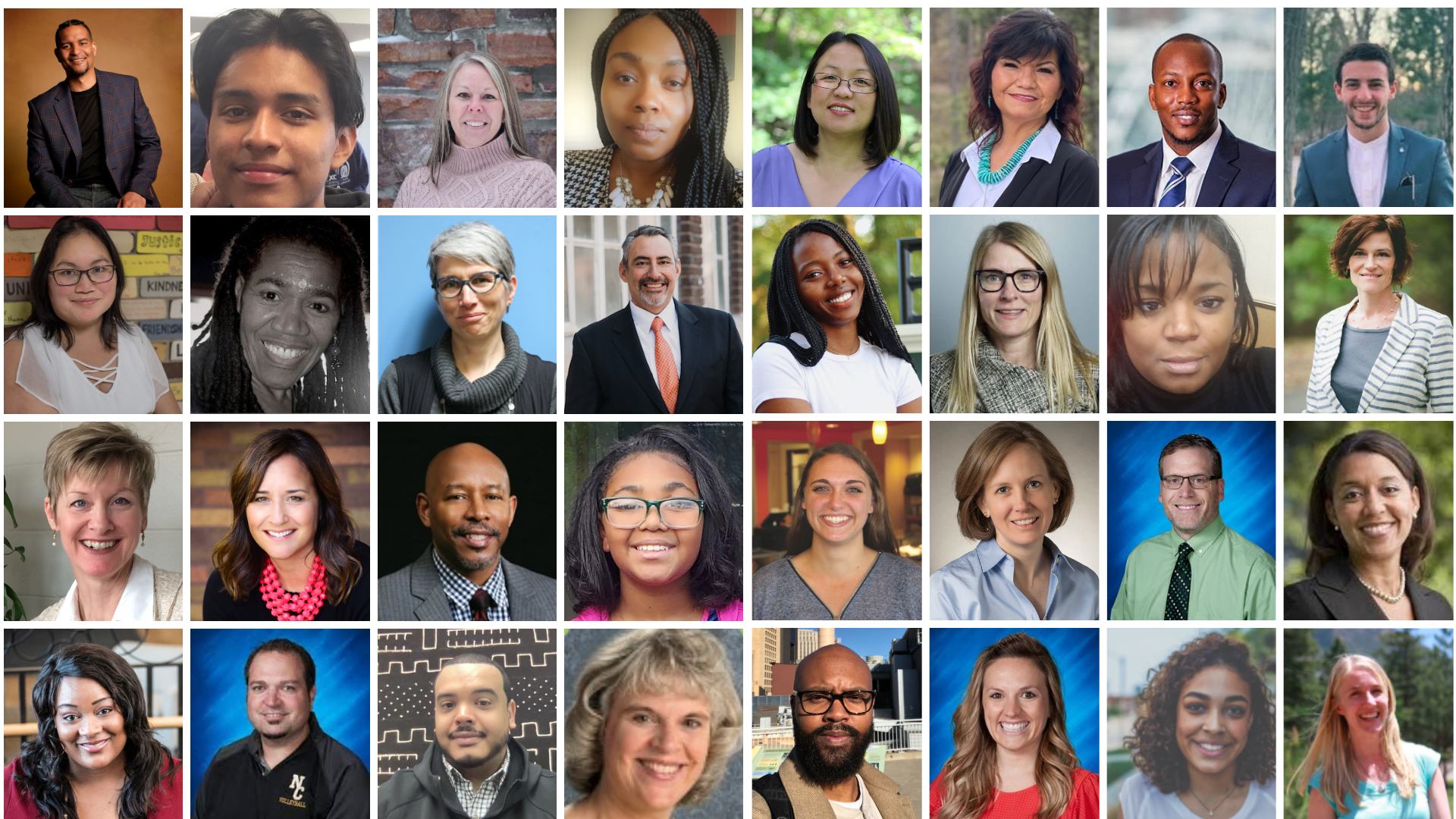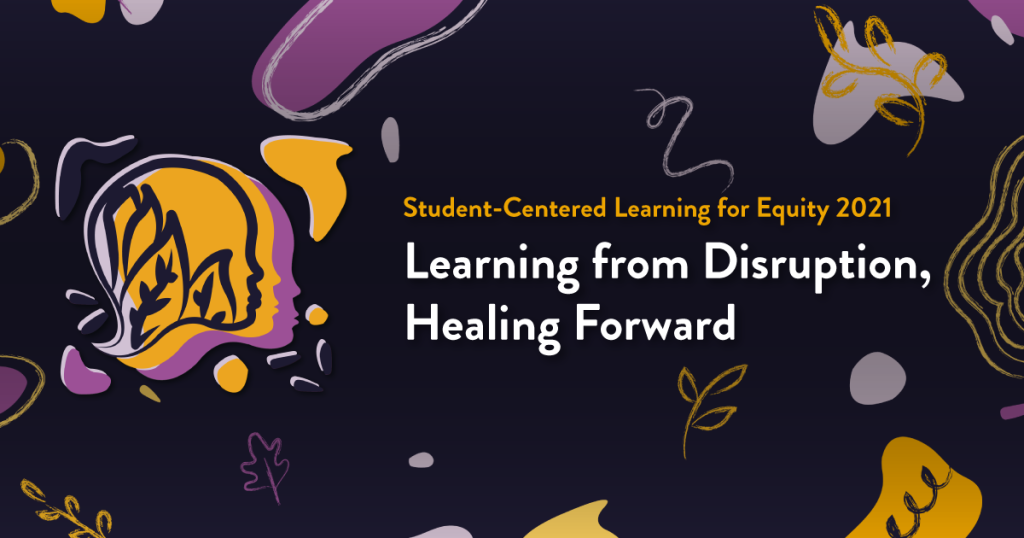Over ten days in May, a community of student-centered educators and advocates gathered at the fifth regional education convening, Student-Centered Learning for Equity 2021, hosted by the Bush Foundation and Education Evolving.
The theme of the event—“Learning from Disruption, Healing Forward”—paid deference to the challenges, traumas, lessons, and opportunities from the most tumultuous academic year in collective memory.
More than 600 people registered to join the multi-day event both live and on-demand. Opening and closing sessions featuring keynote speakers, educator and student panels, and student performances bookended days of breakout sessions and virtual school tours.
“The old normal never was set up to honor, support, and nurture all students,” said Lars Esdal, executive director of Education Evolving, at the opening session, which focused on learning from the disruption of the past year.
“Despite the challenges of the past 12 months, we have really seen powerful glimpses of students being put at the center,” added Jackie Statum Allen, grantmaking director at the Bush Foundation who also spoke at the opening session.
“The central question we need to ask as we move beyond this period—where we’ve had to pause, where we’ve had to stop the way we’ve done things—is how to make this a hard pivot?” Lars asked. “How can we hold on to the best things we’ve tried and the best things we’ve done?”
Breakout sessions on keeping students centered
 Presenters from the 2021 convening.
Presenters from the 2021 convening.Throughout the pandemic, much attention has been given to the challenge of keeping students engaged when they’re behind a mask or behind a screen. But we heard a different story across dozens of breakout sessions. The challenge of engaging students has as much or more to do with relevance and ownership as it does with physical barriers.
For years, this convening has been dedicated to honoring who students are, how they learn, and where they want to go. To engage, what students are learning has to matter to them. And the students themselves have to matter too.
Breakout sessions on cultural relevance, ethnic studies, engaging families and communities, and more urged us to help students see themselves represented in what they learn.
Breakout sessions on state education policy, district visioning, creating a supportive school ethos through student mentoring, and centering student voice in school board work urged system-level change to enable students and educators to build environments where student voice is valued, amplified, and integral to the learning program.
A truly regional gathering
The event was held virtually in light of the pandemic. But the change of format offered a chance to engage some for whom an in-person event (usually in Minneapolis) can be a real hurdle. Namely, two groups: Those outside the Twin Cities metro and those in schools, especially students.
The Bush Foundation serves Minnesota, the Dakotas, and the 23 native nations that share that geography. This virtual event enjoyed representation from across the entire region.
Virtual school tours transported attendees to Spring Grove in southeastern Minnesota; Northern Cass in eastern North Dakota; and to Twin Cities schools like Minneapolis’ El Colegio, Saint Paul’s High School for Recording Arts, and the Hmong language program at Osseo Area Schools.
Spring Grove superintendent Rachel Udstuen spoke in her tour about how the district sought student input across their years-long student-centered journey. They would ask students what was going well, and what needed to change. The responses they got pre-pandemic were usually predictable—more or less what students thought adults wanted to hear. Then March 2020 hit.
“Suddenly our questions had this intensity and this importance to it that they didn’t have before because we had no idea what it was like to be on the receiving end [of distance learning]… We were becoming the learners.”
The format and schedule also gave space for Bridgemakers, a youth-led Twin Cities program engaging diverse young activists, to lead a number of youth-led breakout sessions designed for adults on topics like mentorship, youth mental health, experiential learning, and youth voice.
“The young adults were AMAZING,” wrote one survey respondent after attending a Bridgemakers breakout session. “What they had to say was so powerful.”
Healing forward as we drew to a close
At our closing session, we were joined by educator, artist, and relative Randilynn Boucher-Giago (Zitkana Duta Win).
“What we knew before is not what we need to carry us forward,” Randilynn remarked in her healing talk that reflected on a year in education marked by Covid and the murder of George Floyd. “We have been given this time of realization, a time to feel, a time to understand what it means to truly not breathe. A time when we are reminded of what it means to build communities, to be a relative.”
After her talk, Randilynn facilitated a candid panel with six students of all ages and from across our geographic region. She asked: During the pandemic, what did you experience in school and how did it make you feel? What do you want your school to look like? What would you like teachers to know? Watch to hear their answers.
With this convening behind us, the community nurtured at Student-Centered Learning for Equity persists. Ahead of next year’s event, we’re seeking your ideas on where we go next. Apply to be on the Advisory Council and help plan the 2022 student-centered learning convening.
As EE’s policy director, Danyika Leonard, put it as host of the closing session, “We hope that your experience this year has helped to replenish your reserve and strengthen your resolve to hold our young scholars at the center of our work.”
